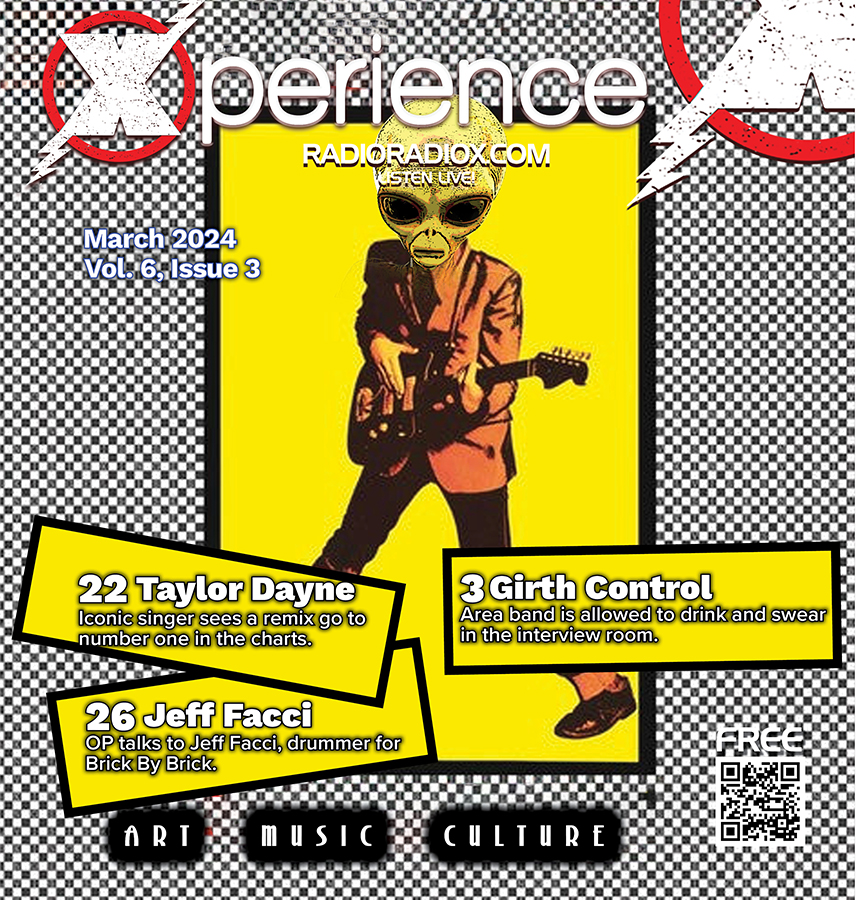“Elvis” Reminds Us of An American Icon -Film Review By: Eric Gustafson
By Staff on July 18, 2022
At the peak of his fame, Elvis Presley was perhaps the most recognizable individual on the planet. Just as you may conjure Charlie Chaplin in your mind’s eye using only a bowler hat, a toothbrush mustache, and a cane, it is easy to picture Presley with no more than a quiff, a curled lip, and a high collar. He remains sufficiently alive in the cultural memory to be a mononym. Nobody ever asks, “Elvis, who?” Yet Presley has faded from the forefront of the world’s collective consciousness. Reminders of his existence are no longer constant and inescapable.
Perhaps that is inevitable given he died almost 45 years ago, in August 1977, while his contemporaries of a similar stature have continued performing. More than 50 years after their split, the Beatles have retained much of their eminence. Consider, for example, that Paul McCartney is headlining Glastonbury festival this year. Bob Dylan, a Nobel laureate in 2016, is earning plaudits for his latest work. The Rolling Stones are in the midst of a stadium tour. All those acts, or their principal members, have had the advantage of living on long after Presley died. John Lennon is an exception: he died only three years after Presley, yet is frequently invoked and commemorated.
Presley may be the best selling solo artist of all time, but that feat leans heavily on the physical-format era. He ranks only 24th on Spotify’s streaming chart of legacy artists, behind other departed acts including Nirvana, 2Pac, and Led Zeppelin. What is more telling is how relatively little he is seen. In the 1990s he was, in that overused and misapplied word, iconic – an object of what amounted to religious worship. He was also a go-to reference for cartoons, film, television scripts, and comedy punchlines. Elvis impersonators were an industry. A film of 1992, “Honeymoon in Vegas”, featured an entire planeload of them dropping from the sky on parachutes in a symbolic display of both the singer’s godlike ubiquity and his descent into caricature.
A new film not only seeks to place Presley front and center once again but also, if inadvertently, offers clues as to why he lost that spotlight in the first place. “Elvis” is directed with typical over-the-top brio by Baz Luhrmann. The Australian filmmaker has a noted flair for lavish yet sincere camp, and it chimes perfectly with Presley’s own sensibility, which could be gaudy and overblown, but was never less than heartfelt. It is this last quality that Luhrmann has sought to restore to a superstar who became widely perceived as a self-parodic joke in his later years and even more so in his cultural afterlife.
“Elvis” is three different films brought together into a whole that, while unwieldy, is spectacular to look at and not for a moment boring (again, much like Presley himself.) One part is an exploration of the relationship between Presley and his manager, Colonel Tom Parker. Parker was a former carnival worker who used every bit of that job’s manipulative tradecraft to promote and exploit Presley. In a delicious turn by Tom Hanks, Parker is a melodrama villain and an unreliable narrator.
In the film’s second strand, the story takes the form of a conventional showbiz biopic. Happily, Austin Butler’s portrayal of Presley – as a shy youngster gifted with otherworldly beauty and a talent like bottled lightning – is strong enough to withstand the clichés of the script. “Elvis” acknowledges Presley’s deep debt to black music with tableau-like scenes showing the performer meeting a host of African-American proto-rock ‘n’ roll pioneers, including Arthur Crudup, B.B. King, Sister Rosetta Tharpe, Little Richard, and Big Mama Thornton. However, Elvis’s relationship to black music is more complicated than either this hagiographic account or the opposing view of Presley as no more than a musical thief, guilty of cultural appropriation and, in the words of Chuck D of Public Enemy, a “straight-up racist”.
But it is here, with the music, that “Elvis” finds its triumphant third aspect: as a hyper-real concert movie. Luhrmann has long excelled at extravagant performance set pieces, and in “Elvis” the viewer truly feels the jolt of electricity that Presley sent through audiences – and through society, culture, and the world – when he stood up to sing, play, and gyrate. He never lost this preternatural charisma, this ability to enrapture a crowd, even in his final days, bloated and betrayed, with death visibly approaching.
Why, then, has Presley become somewhat marginalized? The answer lies in the self-same music. Though he is heralded by cultural historians as the originator of pop modernity, to the ears of younger listeners there is something antiquated about him. “Elvis” correctly depicts Presley as a roots musician in essence. The character at one point remarks that rock ‘n’ roll is really “just gospel and rhythm & blues”. For all their thrilling energy, his songs do indeed feel closer to the traditional modes they drew on – folk and country as well as blues and gospel – than to the genuinely modernist revisions that succeeded them. Contemporary musicians working outside of roots forms today imitate and repurpose sounds from across the decades, but seldom do they reach back further than the Beatles. The only Presley track you’re likely to hear in a broadly retro nightclub set will be a remix of “A Little Less Conversation” from 2002 by Junkie XL.
This gap affords Luhrmann’s film an opportunity to define Presley for generations to whom he has never been a pivotal figure. For some older music fans, familiarity with Presley once bred a certain degree of contempt. “Elvis” offers a chance to marvel at him all over again.



 RadioRadioX
RadioRadioX